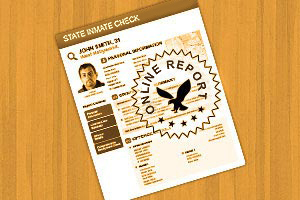Missouri Public Records
The mission of Missouri State Records is to facilitate the use of every citizen’s right to detect, obtain, preview and examine public records. This ensures that residents of the state of Missouri are provided access to public information in correspondence with the Missouri Sunshine Act, which stipulates the necessity of keeping public records open and accessible to the general public.
The purpose of the requester is immaterial in most cases and does not affect a person’s right to obtain access to public records, meaning that the requester does not have to reveal a “need to know,” unless the record has been made confidential.
Missouri State Records grants information about the following subjects: criminal records, court records, vital records, and over 50 million public records.
Are Missouri Records Public?
Missouri public records refer to all publicly available records and documents maintained by government agencies and departments. The Missouri Sunshine Law determines the process of obtaining public records in the state. It also dictates the duties of record custodians, including the modes of maintaining, storing, and issuing copies of public documents to interested parties.
What is Considered Public Information in Missouri?
Missouri public records include, but are not limited to, the following:
- Missouri death records
- Missouri inmate records
- Missouri arrest records or rap sheets
- Missouri property records
- Missouri bankruptcy records
- Missouri marriage records
- Missouri sex offenders' information
- Criminal records and criminal history records
- Missouri divorce records
Under the Missouri Sunshine Law, public records include data stored by any government agency, department, commission, bureau, city, or municipality in the state. Thus, Missouri public records may exist as surveys, reports, memoranda, books, maps, charters, symbols, architecture plans, notes, drafts, video files, audiotapes, SMS, or electronic mail. In addition, public records in Missouri include any information provided by a consultant or professional service under a paid partnership with a government agency.
The Missouri Sunshine Law enables interested persons and entities to request and obtain public documents from the designated record custodian. All that is required is to make a Public Records Law request by contacting the agency that created and/or retains the record that the record seeker would like to inspect or obtain. Most public agencies have public data search tools on their websites where requests can be made. In addition, a record seeker can conduct a free public data search on some public agencies’ websites which could sometimes be limited to specific records, while access to some records might come at a cost. Nevertheless, the term "public records" does not include a public official's notes or drafts used in the decision-making process of a government body. Furthermore, custodian agencies may restrict or redact portions or whole documents if it violates the state’s open records law.
How Do I Find Public Records in Missouri?
Under the Missouri Sunshine Law, record seekers must request and obtain non-confidential copies of public documents from the respective record custodian. Although there are different methods of accessing these records, all public records search in Missouri start with the following general steps:
Know the Requirements for Obtaining the Preferred Public Document
Interested public members who want to know how to access public records in Missouri must see the requirement for obtaining their preferred document. To get the requirements, record seekers must contact the record custodian responsible for providing access to the records. Sometimes, record custodians may charge a certain fee before granting access to public documents. Also, requesters may need to present a government-issued identification before accessing certain confidential information.
For example, Missouri vital records contain sensitive information that may violate a record bearer's privacy. Therefore, the Missouri Bureau of Vital Records issues copies of vital records to the record bearer, family relations, and legal representatives.
Contact the Designated Record Custodian Holding the Preferred Document
Per the Missouri Sunshine Law, government agencies and departments must maintain, store, and issue copies of non-exempt data to interested and eligible persons. Therefore, record seekers can access records by contacting the custodian body via mail, online, and in-person visits. To access records in person, record seekers must visit the agency's physical address. In some cases, record custodians may maintain an online database to provide access to public records. That said, listed below are some of Missouri's custodian agencies:
Create and Send Request for Missouri Public Records
Most record custodians provide a downloadable request form where record seekers can fill out the necessary information for obtaining public documents. In the absence of a downloadable request form template, record seekers must write a request letter to the custodian agency. As a general rule, request letters must contain some of the data listed below:
- The requester's full name and aliases (if known);
- The case number (this applies to court records);
- Preferred mode of delivery (email or mail);
- Record seeker’s contact details;
- The record seeker’s full name and, or aliases;
- Date range when the record was documented;
- The record subject's date of birth;
- Purpose of the request - provide a detailed description of your request;
- Additional information to assist with the search.
Using Third-Party Sites to Find Public Records in Missouri
City Records
Public city records may also be accessible from third-party websites. These non-government platforms come with intuitive tools that allow for expansive searches. Record seekers may either opt to use these tools to search for a specific record or multiple records. However, users will need to provide enough information to assist with the search such as:
- The name of the subject involved in the record (subject must be older than 18 or not juvenile)
- The address of the requestor
- A case number or file number (if known)
- The location of the document or person involved
- The last known or current address of the registrant
Third-party sites are not sponsored by government agencies. Because of this, record availability and results may vary.
Public Records
Public records can also be accessed from third-party websites. These third-party public records aggregate websites offer search services that are non-geographically limited, making the search result expansive and typically straightforward. However, users will need to provide enough information to assist with the search, such as:
- The name of the subject involved in the record as long as the subject is not a juvenile
- The last known or location of the record subject
Third-party public records search websites are not government-sponsored services. Therefore, the availability and accuracy of results can vary.




